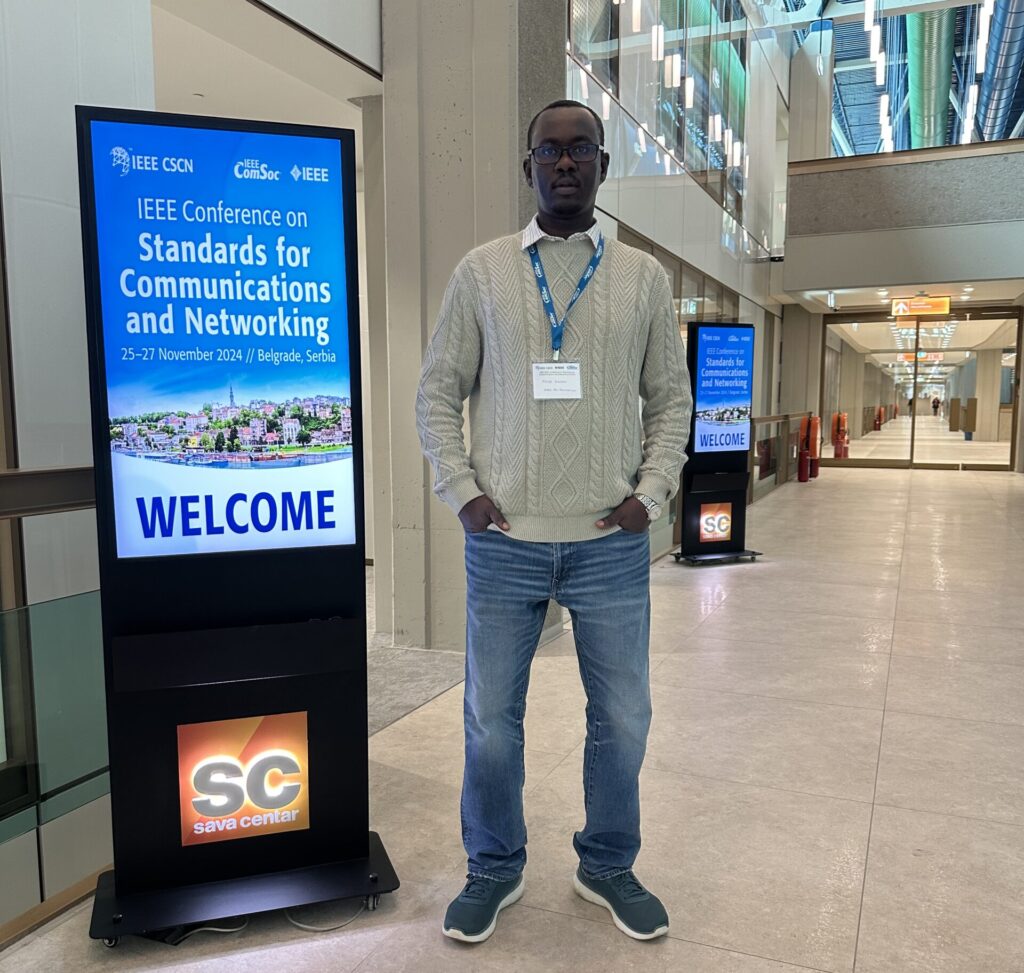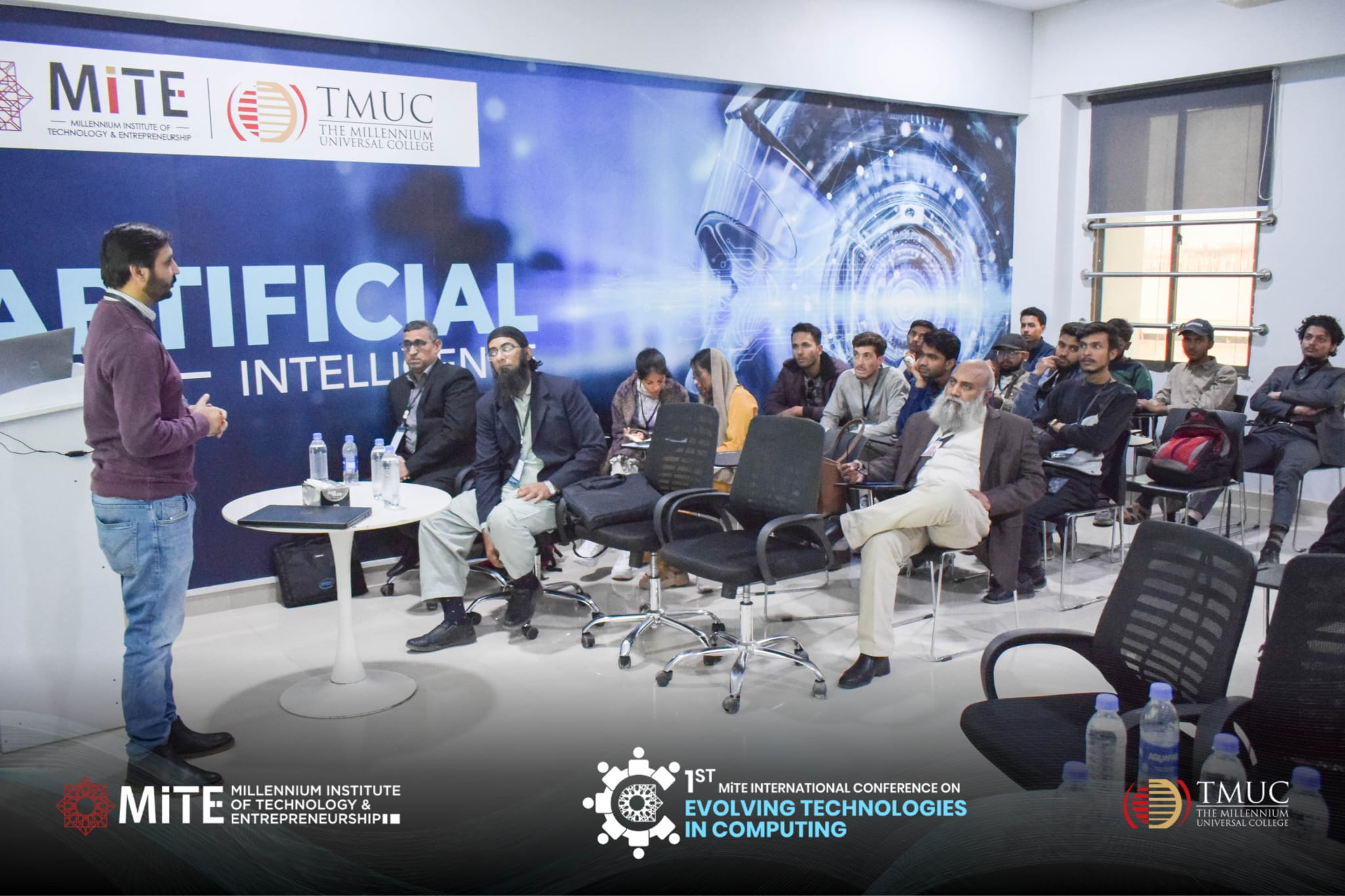Dr Mosab Hamdan presents at IEEE CSCN
Tags:
Dr Mosab Hamdan, Senior Researcher in Walton Institute, SETU, recently attended the IEEE conference on Standards for Communications and Networking (IEEE CSCN) in Belgrade, Serbia.
The aim of IEEE CSCN is to close the standards gap between researchers, scientists and standards experts from academia, industry and different standardization. The conference was seen as a platform for presenting and discussing standards-related topics in the areas of communications, networking and related disciplines, facilitating standards development as well as cooperation among the key players.

Dr Mosab chaired a technical session on research projects, and presented his paper titled “Dynamic Controller Assignment in LEO Satellite-based SDN using Multi-Agent Deep Reinforcement” which proposes a novel solution to ongoing challenges the network faces as a result of rapid expansion.
Paper Abstract
With the rapid growth of Low Earth Orbit (LEO) satellite network applications and the accelerated expansion of the network size, software-defined networking (SDN)-based LEO satellite networks are introduced to manage resources efficiently. These networks face significant challenges due to the dynamic and time-varying nature of LEO systems, such as traffic fluctuations and imbalanced loads. Existing approaches struggle to handle efficient controller assignment in these rapidly changing topologies. To address this, we propose a novel Multi-Agent Deep Deterministic Policy Gradient (MADDPG) scheme that extends the actor-critic algorithm for distributed decision-making. The critic utilizes global information, while each actor manages local decisions, optimizing both load balancing and latency. Our scheme also introduces a synchronization constraint to mitigate delays caused by distributed decision-making. Simulation results demonstrate that our approach significantly reduces latency and achieves better load balancing compared to state-of-the-art techniques, making it a scalable and effective solution for SDN-based LEO satellite networks.




